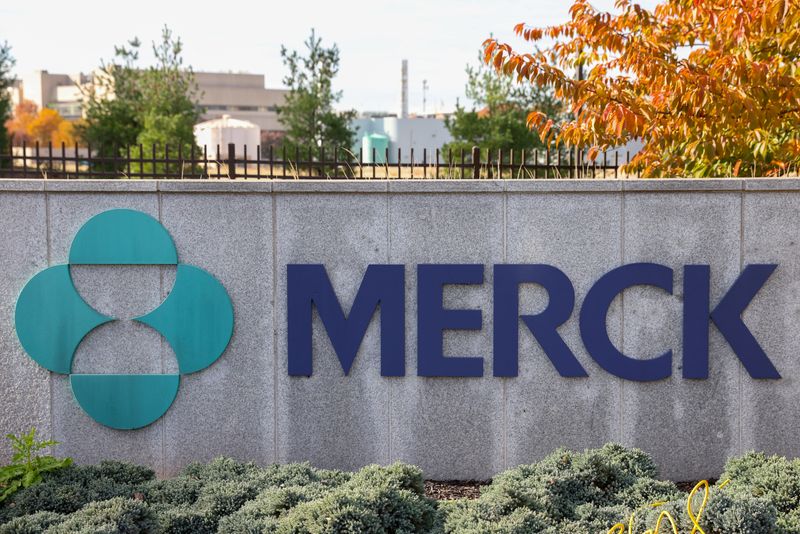By Michael Erman and Leroy Leo
(Reuters) -Merck & Co said on Thursday that weak sales of Gardasil in China are likely to carry over into 2025 as the vaccine’s distributor there reduces inventories amid low demand, and the U.S. drugmaker’s shares fell 3%.
Gardasil, which prevents cancers caused by the human papillomavirus, has been one of Merck’s top growth drivers aside from blockbuster cancer treatment Keytruda, and much of its international growth has come from China.
The vaccine’s sales fell 11% to $2.31 billion in the third quarter, missing the average analyst estimate of $2.46 billion, according to LSEG data.
“It is both a demand issue driven by the economy, some impact on promotional activity we think related to concerns about anti-corruption, as well as continuing adjustment of inventory levels in the marketplace,” Chief Executive Rob Davis said of Gardasil’s China sales in an interview.
“Ultimately, what we have to do is drive demand.”
Beijing has been running a campaign targeting bribery of doctors that disrupts business and scuttles hospital deals with international pharmaceutical companies.
The company expects Gardasil shipments to its partner Zhifei in China in the fourth quarter to be similar to the third. It had similar issues with Gardasil in China in the second quarter.
While the inventory of Gardasil at the points of vaccination had been coming down, those at Zhifei remained above historical levels, Davis said, referring to the local distributer.
“This isn’t going to be solved next quarter. It’s going to take us through probably 2025,” the CEO said of Gardasil’s issues in China on a call to discuss the results.
“We know the opportunity is there with 120 million females still out there to go after, and with potentially 200 million males, with the male opportunity,” Davis said. “We have to activate that demand to make sure we can drive that business.”
Merck’s overall sales in China fell 40% to $996 million in the third quarter from $1.67 billion a year ago.
Gardasil is not the only vaccine that has been hurt by weakness in China. GSK said on Wednesday that sales of its shingles vaccine Shingrix fell in the largest Asian economy.
Merck’s third-quarter adjusted earnings of $1.57 a share beat the average analyst estimate by 7 cents, due to yet another big quarter for Keytruda, which is approved to treat many cancers.
Sales of Keytruda, the world’s top-selling prescription medicine, rose 17% to $7.43 billion in the quarter, beating Wall Street expectations of $7.20 billion.
Merck’s overall sales of $16.66 billion topped analyst forecasts of $16.45 billion.
(Reporting by Michael Erman and Leroy Leo; Editing by Shounak Dasgupta and Bill Berkrot)


